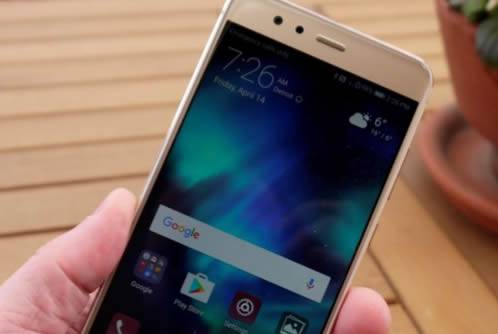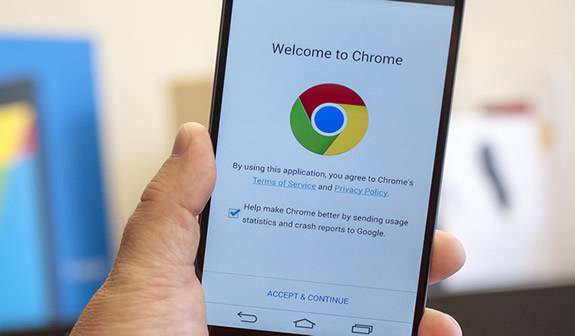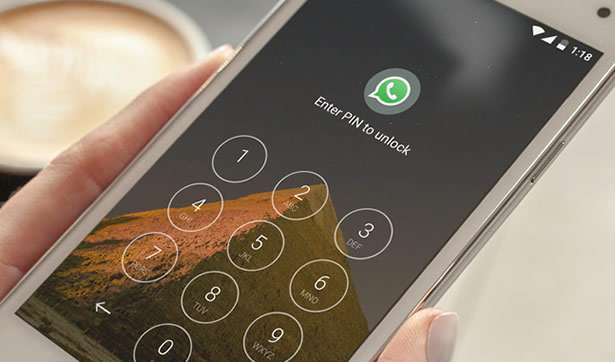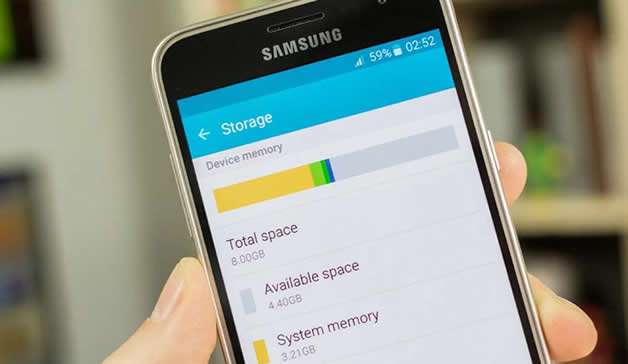Yes, Android devices can be hacked. There are several methods by which hackers can gain access to an Android device, including exploiting known vulnerabilities in the operating system or apps installed on the device; using malicious links or websites to install malware; and phishing attempts that involve tricking users into providing personal information. To keep your Android device secure, it is important to take certain steps such as keeping its operating system updated, only downloading applications from official app stores, avoiding clicking on suspicious links or attachments in emails and text messages, and configuring additional security settings if available on your device.
What are the symptoms of hacked Android phone?
Can androids be hacked easily?
That depends on a variety of factors, including the type of device and its security measures. Generally speaking, any device can be vulnerable to hacking if it doesn’t have adequate protections in place. To reduce the risk of an Android device being hacked, users should ensure that all software is up-to-date with the latest security patches and use strong passwords for authentication. Additionally, users should avoid downloading apps from untrusted sources and install anti-malware or antivirus software to help protect against malicious attacks.
Can you check to see if your phone is hacked?
Yes, it is possible to check if your phone has been hacked. To do this, you should take the following steps:
1. Check for unusual activity on your device such as unfamiliar apps or changes in settings that you did not make.
2. Monitor battery and data usage – if they are unusually high then it could indicate a breach of security.
3. Look at your phone bills and texts for any suspicious charges or messages that you didn’t send yourself.
4. Ensure all devices connected to the same Wi-Fi network have strong passwords and two-factor authentication enabled where possible – this will help protect against unauthorized access to other devices on the same network from one phone being breached by hackers.
5 .Run an anti-virus scan on your device regularly to detect any malicious software that may be installed without your knowledge or consent (you can find free anti-virus programs online).
6 .Always keep security updates up to date – software companies often release patches when vulnerabilities are discovered so updating regularly will ensure you have the latest protections available against potential threats like hacking attempts.
Can someone access my Android phone?
It is possible for someone to access your Android phone, though the exact method depends on what type of security measures you have taken and how knowledgeable the person attempting to access it is. To reduce the chances of unauthorized access, make sure that you keep your device password-protected with a strong password or PIN code, use two-factor authentication if available, avoid clicking suspicious links or downloading unknown applications, and regularly update your device’s software. It’s also important to be aware that certain features such as location tracking can be used to track where your device is located.
Can you Unhack a phone?
It is possible to “unhack” a phone, depending on the extent of what has been done. To do this, it is important to assess the situation and take steps to regain control of your device. First and foremost, you should run an anti-virus program or malware scan on your device to identify any malicious software that may be present. Once identified, you can delete it from the device. You should also change all passwords associated with your accounts, as well as those used by any third party applications installed on the phone. Finally, set up two-factor authentication for extra security if available.
What are three signs which shows your phone has been hacked?
It can be difficult to determine if your phone has been hacked, as the signs can often be subtle and easily overlooked. However, there are a few key indicators that may suggest that your device has been compromised.
1. Unfamiliar Apps or Data: If you notice apps on your phone that you did not install, or data saved on it that was not created by you, then this could indicate a possible hack of your device.
2. Unusually High Data Usage: If you observe an unusual spike in data usage from applications or services which would normally use less data than it is currently using – such as email accounts – then this could also suggest malicious activity on your phone.
3. Abnormal Battery Drain: Finally, one of the most noticeable signs of a potential hack is when battery life starts to unexpectedly drain faster than usual despite no change in usage pattern from yourself – this could indicate unauthorised software running in the background without your knowledge which is consuming resources and draining power rapidly.
If any of these red flags appear while using your smartphone, it may be best to take further steps to ensure its security by performing a full virus scan with anti-malware software and resetting all passwords associated with accounts used on the device for added protection against malicious actors gaining access to sensitive information stored within them
Which phones get hacked the most?
The best way to protect yourself against phone hacking is to ensure you are taking the necessary steps to secure your device. It’s important to remember that any mobile device can be vulnerable, regardless of make or model, so it’s essential to take all precautions. Here are some tips for protecting your mobile device:
1. Use a strong and unique password or passcode on your phone as well as other accounts like email, banking and social media.
2. Enable screen locks with passwords or biometric authentication methods such as fingerprint scanning or facial recognition where available.
3. Make sure you have the latest software updates installed from the manufacturer so any security patches can be applied immediately when they become available
4. Install an anti-virus program on your device which will scan for malicious content before downloading apps and files
5. Avoid clicking on suspicious links in emails, texts, posts and ads; these could lead you unknowingly into downloading malware onto your phone
6. Use caution when using public Wi-Fi networks which may not always be secure
Can you remove a hacker from your phone?
Yes, it is possible to remove a hacker from your phone. It is important to take the necessary steps to protect yourself and your device from potential security risks. Here are some steps you can take to help secure your device:
1. Change all of your passwords for any accounts that were accessed by the hacker, including email, banking, social media and other websites which may have been compromised.
2. Update the operating system on your phone with the latest security patches available from the manufacturer’s website or app store (e.g., Apple App Store).
3. Install antivirus protection software on your phone, such as Avast or AVG Mobile Security & Antivirus for Android devices; Lookout Security & Antivirus for iOS devices; or McAfee Mobile Security Suite for Windows Phone devices.
4. Ensure that you’re using two-factor authentication wherever applicable in order to further secure access points (e.g., bank accounts).
5. Consider wiping your phone completely if there is still a risk of further infiltration into personal data stored on it even after taking these measures (please back up any data first before doing so).
{“@context”:”https://schema.org”,”@type”:”FAQPage”,”mainEntity”:[{“@type”:”Question”,”name”:”Can androids be hacked easily?”,”acceptedAnswer”:{“@type”:”Answer”,”text”:”nnThat depends on a variety of factors, including the type of device and its security measures. Generally speaking, any device can be vulnerable to hacking if it doesn’t have adequate protections in place. To reduce the risk of an Android device being hacked, users should ensure that all software is up-to-date with the latest security patches and use strong passwords for authentication. Additionally, users should avoid downloading apps from untrusted sources and install anti-malware or antivirus software to help protect against malicious attacks.”}},{“@type”:”Question”,”name”:”Can you check to see if your phone is hacked?”,”acceptedAnswer”:{“@type”:”Answer”,”text”:”nnYes, it is possible to check if your phone has been hacked. To do this, you should take the following steps: n1. Check for unusual activity on your device such as unfamiliar apps or changes in settings that you did not make. n2. Monitor battery and data usage – if they are unusually high then it could indicate a breach of security. n3. Look at your phone bills and texts for any suspicious charges or messages that you didnu2019t send yourself. n4. Ensure all devices connected to the same Wi-Fi network have strong passwords and two-factor authentication enabled where possible u2013 this will help protect against unauthorized access to other devices on the same network from one phone being breached by hackers. n5 .Run an anti-virus scan on your device regularly to detect any malicious software that may be installed without your knowledge or consent (you can find free anti-virus programs online). n6 .Always keep security updates up to date u2013 software companies often release patches when vulnerabilities are discovered so updating regularly will ensure you have the latest protections available against potential threats like hacking attempts.”}},{“@type”:”Question”,”name”:”Can someone access my Android phone?”,”acceptedAnswer”:{“@type”:”Answer”,”text”:”nnIt is possible for someone to access your Android phone, though the exact method depends on what type of security measures you have taken and how knowledgeable the person attempting to access it is. To reduce the chances of unauthorized access, make sure that you keep your device password-protected with a strong password or PIN code, use two-factor authentication if available, avoid clicking suspicious links or downloading unknown applications, and regularly update your device’s software. It’s also important to be aware that certain features such as location tracking can be used to track where your device is located.”}},{“@type”:”Question”,”name”:”Can you Unhack a phone?”,”acceptedAnswer”:{“@type”:”Answer”,”text”:”nnIt is possible to “unhack” a phone, depending on the extent of what has been done. To do this, it is important to assess the situation and take steps to regain control of your device. First and foremost, you should run an anti-virus program or malware scan on your device to identify any malicious software that may be present. Once identified, you can delete it from the device. You should also change all passwords associated with your accounts, as well as those used by any third party applications installed on the phone. Finally, set up two-factor authentication for extra security if available.”}},{“@type”:”Question”,”name”:”What are three signs which shows your phone has been hacked?”,”acceptedAnswer”:{“@type”:”Answer”,”text”:”nnIt can be difficult to determine if your phone has been hacked, as the signs can often be subtle and easily overlooked. However, there are a few key indicators that may suggest that your device has been compromised. nn1. Unfamiliar Apps or Data: If you notice apps on your phone that you did not install, or data saved on it that was not created by you, then this could indicate a possible hack of your device. nn2. Unusually High Data Usage: If you observe an unusual spike in data usage from applications or services which would normally use less data than it is currently using – such as email accounts – then this could also suggest malicious activity on your phone. nn3. Abnormal Battery Drain: Finally, one of the most noticeable signs of a potential hack is when battery life starts to unexpectedly drain faster than usual despite no change in usage pattern from yourself – this could indicate unauthorised software running in the background without your knowledge which is consuming resources and draining power rapidly. nnIf any of these red flags appear while using your smartphone, it may be best to take further steps to ensure its security by performing a full virus scan with anti-malware software and resetting all passwords associated with accounts used on the device for added protection against malicious actors gaining access to sensitive information stored within them”}},{“@type”:”Question”,”name”:”Which phones get hacked the most?”,”acceptedAnswer”:{“@type”:”Answer”,”text”:”nnThe best way to protect yourself against phone hacking is to ensure you are taking the necessary steps to secure your device. It’s important to remember that any mobile device can be vulnerable, regardless of make or model, so itu2019s essential to take all precautions. Here are some tips for protecting your mobile device: n1. Use a strong and unique password or passcode on your phone as well as other accounts like email, banking and social media. n2. Enable screen locks with passwords or biometric authentication methods such as fingerprint scanning or facial recognition where available. n3. Make sure you have the latest software updates installed from the manufacturer so any security patches can be applied immediately when they become available n4. Install an anti-virus program on your device which will scan for malicious content before downloading apps and files n5. Avoid clicking on suspicious links in emails, texts, posts and ads; these could lead you unknowingly into downloading malware onto your phone n6. Use caution when using public Wi-Fi networks which may not always be secure”}},{“@type”:”Question”,”name”:”Can you remove a hacker from your phone?”,”acceptedAnswer”:{“@type”:”Answer”,”text”:”nnYes, it is possible to remove a hacker from your phone. It is important to take the necessary steps to protect yourself and your device from potential security risks. Here are some steps you can take to help secure your device: n1. Change all of your passwords for any accounts that were accessed by the hacker, including email, banking, social media and other websites which may have been compromised.n2. Update the operating system on your phone with the latest security patches available from the manufacturer’s website or app store (e.g., Apple App Store). n3. Install antivirus protection software on your phone, such as Avast or AVG Mobile Security & Antivirus for Android devices; Lookout Security & Antivirus for iOS devices; or McAfee Mobile Security Suite for Windows Phone devices. n4. Ensure that you’re using two-factor authentication wherever applicable in order to further secure access points (e.g., bank accounts). n5. Consider wiping your phone completely if there is still a risk of further infiltration into personal data stored on it even after taking these measures (please back up any data first before doing so).”}}]}







